Vitamin D
How to submit an article:
- Registered users can submit any published journal article that has a unique DOI (Digital Object Identifier) name or link to Research Hub.
- For example, you can paste the full DOI link:
https://doi.org/10.1109/5.771073or just the DOI name:10.1109/5.771073into the field above and click submit. - The person who is first to submit a valid article to Research Hub will forever be credited for it, and every article submission earns you +6 Research Points.
Related Topics
Published research studies are articles that present the findings of original research that has undergone a peer-review process and has been made publicly available in scholarly journals, books or other media.

Effect of Vitamin D Supplementation on Primary Dysmenorrhea: A Systematic Review and Meta-Analysis of Randomized Clinical Trials
2023 Jun 21 Nutrients Chen YC, Chiang YF, Lin YJ, Huang KC, Chen HY, Hamdy NM, et al.
Systematic Review Meta-Analysis Period Pain Food NutrientsVitamin D supplementation significantly reduces pain levels in people suffering from primary dysmenorrhea.

Vitamin D in Depression: A Potential Bioactive Agent to Reduce Suicide and Suicide Attempt Risk
2023 Apr 04 Nutrients Somoza-Moncada MM, Turrubiates-Hernández FJ, Muñoz-Valle JF, Gutiérrez-Brito JA, Díaz-Pérez SA, Aguayo-Arelis A, et al.
Review Article Suicide DepressionVitamin D deficiency could accelerate depressive symptoms and suicide risks, and vitamin D supplementation may mitigate these effects.
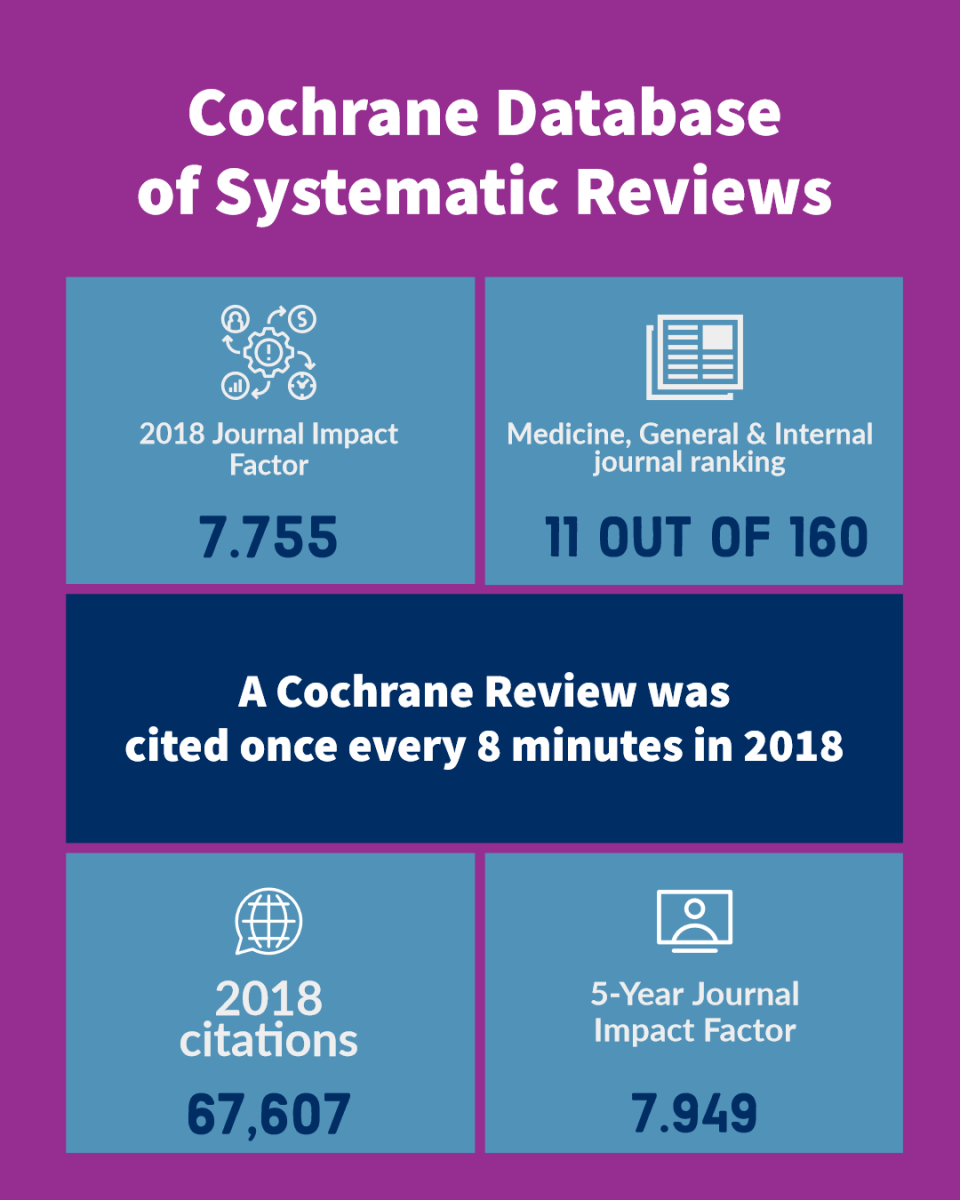
Calcium and vitamin D for increasing bone mineral density in premenopausal women
2023 Jan 27 Cochrane Database of Systematic Reviews Méndez-Sánchez L, Clark P, Winzenberg TM, Tugwell P, Correa-Burrows P, Costello R
Systematic Review Bone Mineral Density Vitamin D Osteoporosis Calcium
Evaluation of the Safety and Effectiveness of Nutritional Supplements for Treating Hair Loss
2023 Jan 01 JAMA Dermatology Drake L, Reyes-Hadsall S, Martinez J, Heinrich C, Huang K, Mostaghimi A
Dietary and nutritional interventions, including Viviscal, Nourkrin, Nutrafol, Lamdapil, Pantogar, capsaicin and isoflavone, omegas 3 and 6 with antioxidants, apple nutraceutical, total glucosides of paeony and compound glycyrrhizin tablets, zinc, tocotrienol, pumpkin seed oil, Kimchi and cheonggukjang, vitamin D3, and Forti5, showed varying levels of evidence for potential benefits in improving disease course, with rare and mild adverse effects.
Systematic Review Randomised Controlled Trial Hair Loss Pumpkin Seed Oil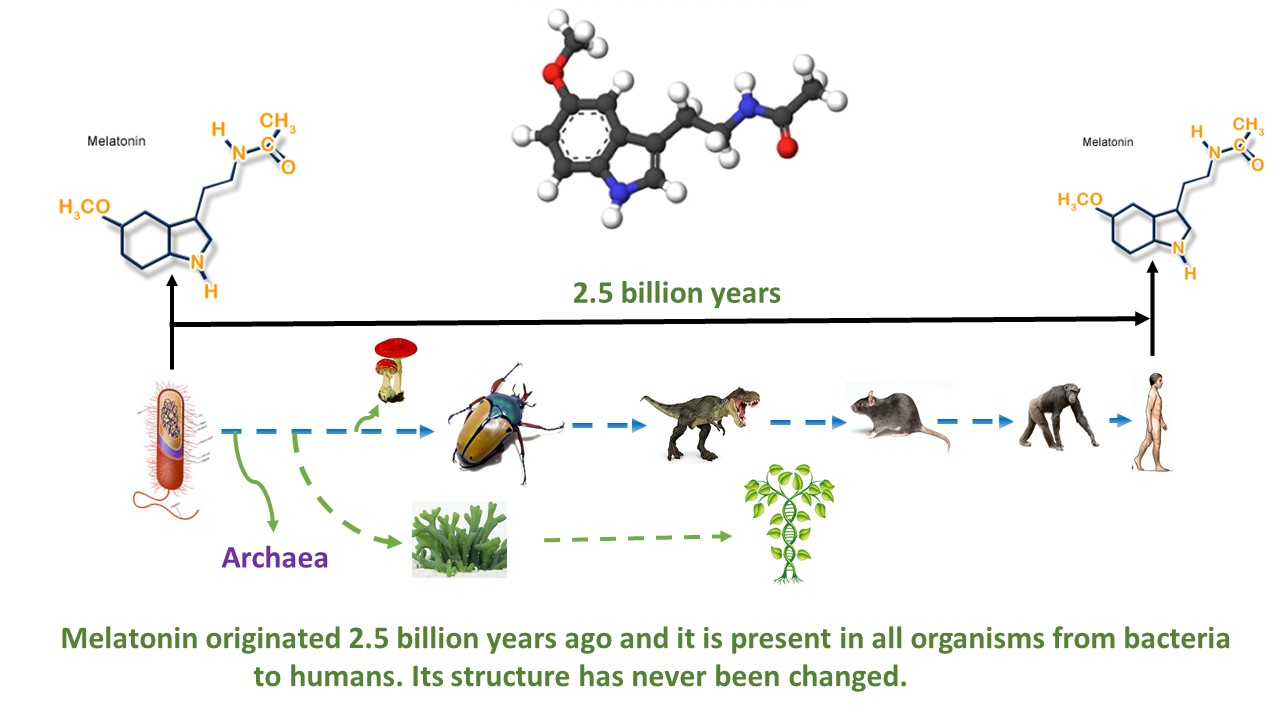
Serotonin, melatonin and their precursors and metabolites and vitamin D3 derivatives in honey
2022 Sep 30 Melatonin Research Kim TK, Fabisiak A, Brzeminski P, Reiter RJ, Slominski AT
Review Article Serotonin Honey Vitamin D MelatoninRecent revelations of L-DOPA, dopamine, 5-hydroxytryptophan, tryptamine, serotonin, N-acetylserotonin, melatonin, 2-hydroxymelatonin, AFMK, AMK, and vitamin D3 derivatives in honey expand its health benefits.
Research insights are moderated by the Research Hub team and offer an at-a-glance overview of interesting research findings.

2023 Nutrients
Vitamin D supplementation significantly reduces pain levels in people suffering from primary dysmenorrhea.
Systematic Review Food Nutrients Period Pain
Effect of Vitamin D Supplementation on Primary Dysmenorrhea: A Systematic Review and Meta-Analysis of Randomized Clinical Trials
Chen YC, Chiang YF, Lin YJ, Huang KC, Chen HY, Hamdy NM, et al.

2023 Nutrients
Vitamin D deficiency could accelerate depressive symptoms and suicide risks, and vitamin D supplementation may mitigate these effects.
Review Article Depression Suicide
Vitamin D in Depression: A Potential Bioactive Agent to Reduce Suicide and Suicide Attempt Risk
Somoza-Moncada MM, Turrubiates-Hernández FJ, Muñoz-Valle JF, Gutiérrez-Brito JA, Díaz-Pérez SA, Aguayo-Arelis A, et al.

2022 Melatonin Research
Recent revelations of L-DOPA, dopamine, 5-hydroxytryptophan, tryptamine, serotonin, N-acetylserotonin, melatonin, 2-hydroxymelatonin, AFMK, AMK, and vitamin D3 derivatives in honey expand its health benefits.
Review Article Honey Melatonin Serotonin
Serotonin, melatonin and their precursors and metabolites and vitamin D3 derivatives in honey
Kim TK, Fabisiak A, Brzeminski P, Reiter RJ, Slominski AT

2022 Critical Reviews in Food Science and Nutrition
Vitamin D supplementation, particularly in doses greater than 2,000 IU/day, can help reduce depressive symptoms in adults.
Systematic Review Depression
The effect of vitamin D supplementation on depressive symptoms in adults: A systematic review and meta‐analysis of randomized controlled trials
Mikola T, Marx W, Lane MM, Hockey M, Loughman A, Rajapolvi S, et al.

2022 Acta Biomedica
Dietary supplements are found to be a promising complementary treatment for endometriosis, thanks to their anti-inflammatory, anti-oxidant, and immune modulatory characteristics.
Review Article
Dietary supplements for treatment of endometriosis: A review
Yalçın Bahat P, Ayhan I, Üreyen Özdemir E, İnceboz Ümit, Oral E
Review Articles
Review articles summarise and critically evaluate the current state of research on a specific topic or field by synthesising multiple primary research studies.

Effect of Vitamin D Supplementation on Primary Dysmenorrhea: A Systematic Review and Meta-Analysis of Randomized Clinical Trials
2023 Jun 21 Nutrients Chen YC, Chiang YF, Lin YJ, Huang KC, Chen HY, Hamdy NM, et al.
Systematic Review Meta-Analysis Period Pain Food NutrientsVitamin D supplementation significantly reduces pain levels in people suffering from primary dysmenorrhea.

Vitamin D in Depression: A Potential Bioactive Agent to Reduce Suicide and Suicide Attempt Risk
2023 Apr 04 Nutrients Somoza-Moncada MM, Turrubiates-Hernández FJ, Muñoz-Valle JF, Gutiérrez-Brito JA, Díaz-Pérez SA, Aguayo-Arelis A, et al.
Review Article Suicide DepressionVitamin D deficiency could accelerate depressive symptoms and suicide risks, and vitamin D supplementation may mitigate these effects.

Calcium and vitamin D for increasing bone mineral density in premenopausal women
2023 Jan 27 Cochrane Database of Systematic Reviews Méndez-Sánchez L, Clark P, Winzenberg TM, Tugwell P, Correa-Burrows P, Costello R
Systematic Review Bone Mineral Density Vitamin D Osteoporosis CalciumThis Cochrane review does not support the isolated or combined use of calcium and vitamin D supplementation in healthy premenopausal women to improve bone mineral density in the total hip or lumbar spine, and therefore it is unlikely to have a benefit for the prevention of fractures (vertebral and non‐vertebral). —Jinnan C 11 Feb 2023

Evaluation of the Safety and Effectiveness of Nutritional Supplements for Treating Hair Loss
2023 Jan 01 JAMA Dermatology Drake L, Reyes-Hadsall S, Martinez J, Heinrich C, Huang K, Mostaghimi A
Dietary and nutritional interventions, including Viviscal, Nourkrin, Nutrafol, Lamdapil, Pantogar, capsaicin and isoflavone, omegas 3 and 6 with antioxidants, apple nutraceutical, total glucosides of paeony and compound glycyrrhizin tablets, zinc, tocotrienol, pumpkin seed oil, Kimchi and cheonggukjang, vitamin D3, and Forti5, showed varying levels of evidence for potential benefits in improving disease course, with rare and mild adverse effects.
Systematic Review Randomised Controlled Trial Hair Loss Pumpkin Seed Oil
Serotonin, melatonin and their precursors and metabolites and vitamin D3 derivatives in honey
2022 Sep 30 Melatonin Research Kim TK, Fabisiak A, Brzeminski P, Reiter RJ, Slominski AT
Review Article Serotonin Honey Vitamin D MelatoninRecent revelations of L-DOPA, dopamine, 5-hydroxytryptophan, tryptamine, serotonin, N-acetylserotonin, melatonin, 2-hydroxymelatonin, AFMK, AMK, and vitamin D3 derivatives in honey expand its health benefits.
Clinical Trials
Clinical trials are research studies that involve people and are conducted to evaluate the safety and efficacy of new treatments or interventions, such as drugs, medical devices, or behavioural therapies.

Evaluation of the Safety and Effectiveness of Nutritional Supplements for Treating Hair Loss
2023 Jan 01 JAMA Dermatology Drake L, Reyes-Hadsall S, Martinez J, Heinrich C, Huang K, Mostaghimi A
Dietary and nutritional interventions, including Viviscal, Nourkrin, Nutrafol, Lamdapil, Pantogar, capsaicin and isoflavone, omegas 3 and 6 with antioxidants, apple nutraceutical, total glucosides of paeony and compound glycyrrhizin tablets, zinc, tocotrienol, pumpkin seed oil, Kimchi and cheonggukjang, vitamin D3, and Forti5, showed varying levels of evidence for potential benefits in improving disease course, with rare and mild adverse effects.
Systematic Review Randomised Controlled Trial Hair Loss Pumpkin Seed Oil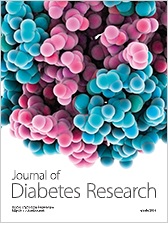
Vitamin D Supplementation for the Treatment of Depressive Symptoms in Women with Type 2 Diabetes: A Randomized Clinical Trial
2022 Mar 03 Journal of Diabetes Research Penckofer S, Ridosh M, Adams W, Grzesiak M, Woo J, Byrn M, et al.
Randomised Controlled Trial Depression Type 2 DiabetesVitamin D supplementation effectively improves depressive symptoms in women with type 2 diabetes and low vitamin D levels, regardless of the dose administered.
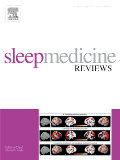
Effects of vitamin D on mood and sleep in the healthy population: Interpretations from the serotonergic pathway
2021 Feb Sleep Medicine Reviews Huiberts LM, Smolders KCHJ
These studies revealed mixed results for both sleep and mood. The findings were interpreted based on the previously proposed serotonergic pathway of vitamin D. Implications and challenges for future research regarding the timing of blood sampling, timing and dosage of supplement intake and investigating the response dynamics are discussed.
Clinical Study Randomised Controlled Trial Serotonin Sleep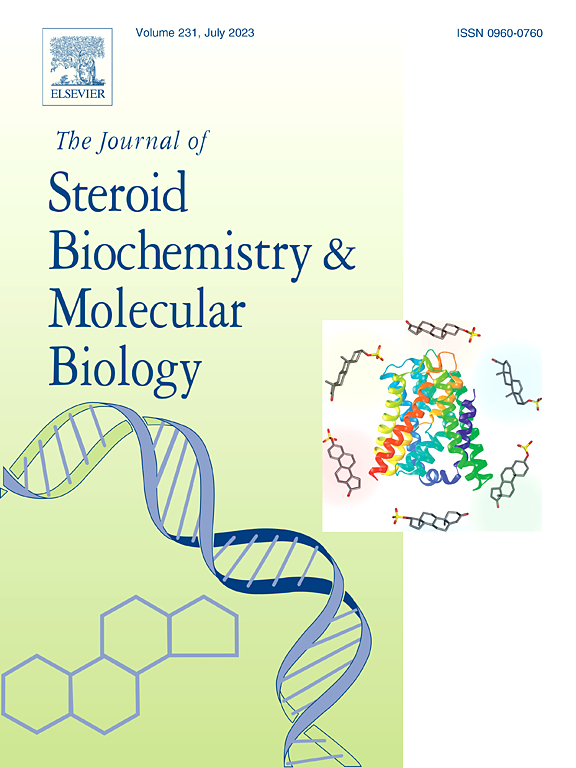
A randomised controlled trial of vitamin D and omega-3 long chain polyunsaturated fatty acids in the treatment of irritability and hyperactivity among children with autism spectrum disorder
2019 Mar The Journal of Steroid Biochemistry and Molecular Biology Mazahery H, Conlon CA, Beck KL, Mugridge O, Kruger MC, Stonehouse W, et al.
The results indicate that vitamin D and omega-3 LCPUFA reduced irritability symptoms in children with ASD. Vitamin D also reduced hyperactivity symptoms in these children.
Randomised Controlled Trial Vitamin D Omega-3 Fatty AcidsStudy Protocols
Published study protocols are detailed plans that outline the objectives, methodology, statistical analyses, and organisation of a research study that have been made publicly available for others to review and use as a reference.
Presentation Slides

Systematic Review
Vitamin D supplementation significantly reduces pain levels in people suffering from primary dysmenorrhea.
Chen YC, Chiang YF, Lin YJ, Huang KC, Chen HY, Hamdy NM, Huang TC, Chang HY, Shieh TM, Huang YJ, Hsia SM

Review Article
Vitamin D deficiency could accelerate depressive symptoms and suicide risks, and vitamin D supplementation may mitigate these effects.
Somoza-Moncada MM, Turrubiates-Hernández FJ, Muñoz-Valle JF, Gutiérrez-Brito JA, Díaz-Pérez SA, Aguayo-Arelis A, Hernández-Bello J

Review Article
Recent revelations of L-DOPA, dopamine, 5-hydroxytryptophan, tryptamine, serotonin, N-acetylserotonin, melatonin, 2-hydroxymelatonin, AFMK, AMK, and vitamin D3 derivatives in honey expand its health benefits.
Kim TK, Fabisiak A, Brzeminski P, Reiter RJ, Slominski AT

Systematic Review
Vitamin D supplementation, particularly in doses greater than 2,000 IU/day, can help reduce depressive symptoms in adults.
Mikola T, Marx W, Lane MM, Hockey M, Loughman A, Rajapolvi S, Rocks T, O’Neil A, Mischoulon D, Valkonen-Korhonen M, Lehto SM, Ruusunen A

Review Article
Dietary supplements are found to be a promising complementary treatment for endometriosis, thanks to their anti-inflammatory, anti-oxidant, and immune modulatory characteristics.
Yalçın Bahat P, Ayhan I, Üreyen Özdemir E, İnceboz Ümit, Oral E

Randomised Controlled Trial
Vitamin D supplementation effectively improves depressive symptoms in women with type 2 diabetes and low vitamin D levels, regardless of the dose administered.
Penckofer S, Ridosh M, Adams W, Grzesiak M, Woo J, Byrn M, Kouba J, Sheean P, Kordish C, Durazo-Arvizu R, Wallis D, Emanuele MA, Halaris A
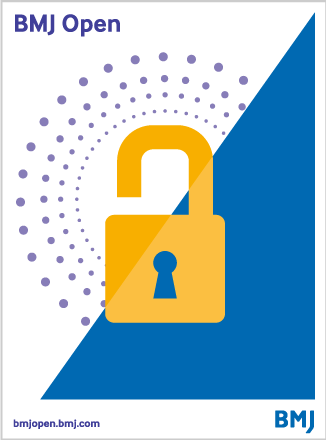
Cohort Study
Vitamin D and Omega 3 fatty acids supplementation appears to reduce the risk of autoimmune diseases.
Hahn J, Cook NR, Alexander EK, Friedman S, Walter J, Bubes V, Kotler G, Lee IM, Manson JAE, Costenbader KH
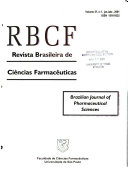
Review Article
High doses of vitamin C, vitamin D supplementation and natural honey can potentially decrease fatalities and support the management of COVID-19.
Rabby MII, Hossain F, Islam MA, Islam AKMS, Akhi IJ, Akter F
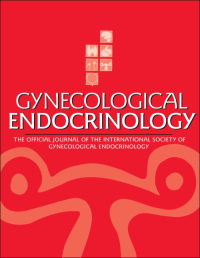
Clinical Study
Simultaneous administration of vitamin D and Epigallocatechin gallate significantly reduces the size of uterine fibroids in premenopausal women, and decreases menstrual flow duration.
Grandi G, Del Savio MC, Melotti C, Feliciello L, Facchinetti F

Review Article
Recent findings suggest that the molecular background to the development of insulin resistance may be related to vitamin D deficiency.
Contreras-Bolívar V, García-Fontana B, García-Fontana C, Muñoz-Torres M
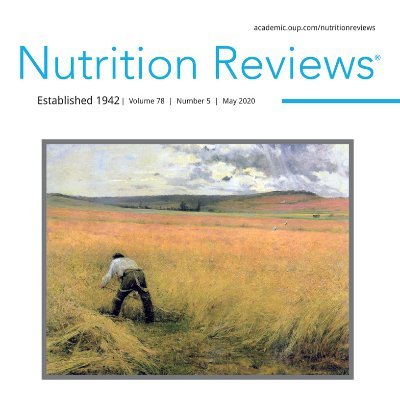
Systematic Review
High doses of omega-3 fatty acids, Vitamin D supplementation, and dietary sodium restriction showed significant improvement in reducing rheumatoid arthritis symptoms.
Philippou E, Petersson SD, Rodomar C, Nikiphorou E

Experimental Study
Honey contains 20(S)-Hydroxyvitamin D3 (20(OH)D3) and its derivatives, including 20(OH)-7DHC, 25(OH)D3, and 1,25(OH)2D3, indicating their production in bees and suggesting potential health implications.
Kim TK, Atigadda V, Brzeminski P, Fabisiak A, Tang EKY, Tuckey RC, Slominski AT

Experimental Study
We determined the concentration of 20(OH)D3 in honey to be 0.26 µg/g, corresponding to approximately 10 IU/g.
Kim TK, Atigadda V, Brzeminski P, Fabisiak A, Tang EKY, Tuckey RC, Slominski AT
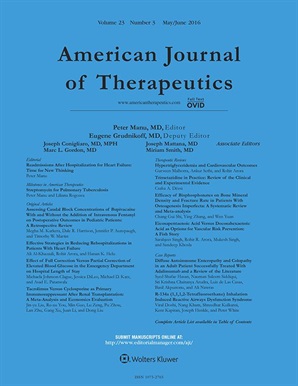
Review Article
Mg is essential in the metabolism of vitamin D, and taking large doses of vitamin D can induce severe depletion of Mg. Adequate magnesium supplementation should be considered as an important aspect of vitamin D therapy.
Reddy P, Edwards LR
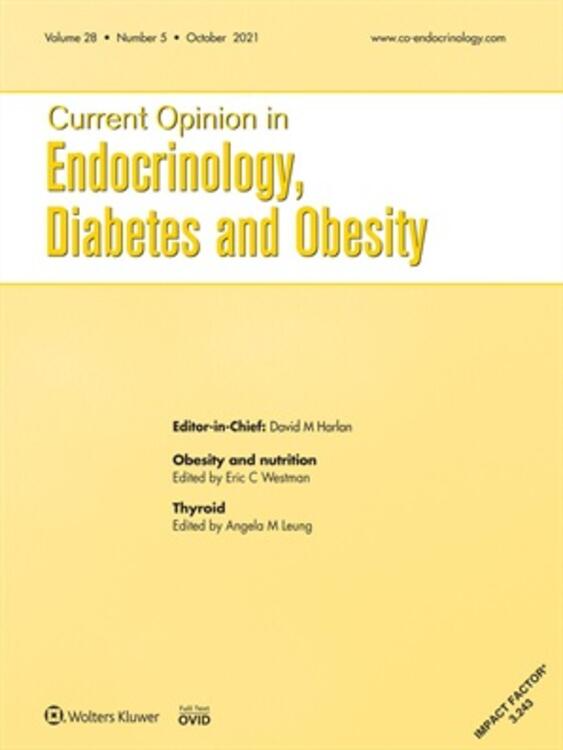
Review Article
Maintenance of sufficient vitamin D status may be important in preventing anemia, particularly in diseases characterized by inflammation.
Smith EM, Tangpricha V
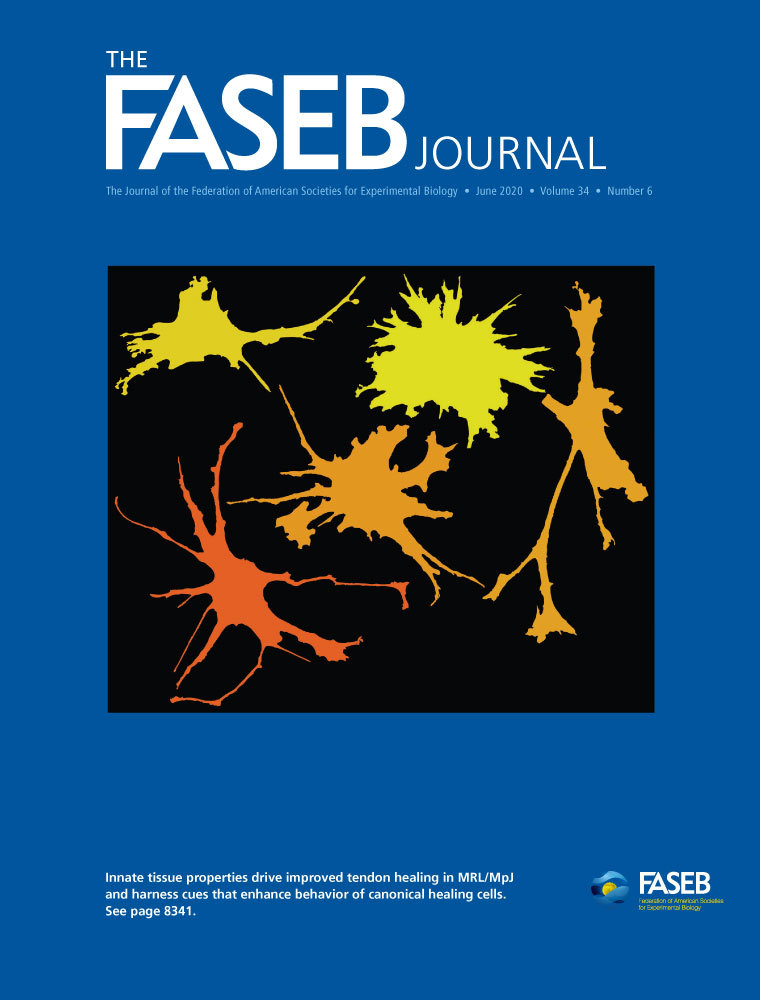
Review Article
Serotonin function, influenced by vitamin D and omega-3 fatty acids, plays a critical role in neuropsychiatric disorders and certain behavioral functions.
Patrick RP, Ames BN
Executive Summary
Write an executive summary in the form of a blog article on the topic of "Research into Chinese medicine treatment for Vitamin D" summarising the research below and using language that can be easily understood by patients and avoiding medical jargon using a professional and caring tone of voice.
Write an executive summary in the form of a blog article on the topic of "Researched Chinese medicine treatments for Vitamin D" summarising the research below in an objective and easy to understand way, and using language that can be easily understood by patients. Group the article into Chinese medicine treatments first, followed by nutrition and other treatments. Avoid using medical jargon and use a professional and caring tone of voice.
Write me a concise but easy to understand executive summary on the topic of "Chinese medicine treatments for Vitamin D" based on the following research that I will give you. Your summary should be 2 paragraphs long in Australian English spelling and include references to the studies.
A Systematic Review published in 2023 in the journal Nutrients found that Vitamin D supplementation significantly reduces pain levels in people suffering from primary dysmenorrhea. In the methodology of this study, a systematic database search was conducted for randomized controlled trials assessing the effects of oral vitamin D supplementation on relieving the symptoms of primary dysmenorrhea. The trials included comparisons of vitamin D treatment with placebo or standard care. Pain levels due to dysmenorrhea were gauged using a visual analogue or numerical rating scale. Analyses were conducted using a standardized mean difference in a meta-analysis. The results indicated that pain levels were considerably lower in participants who took vitamin D compared to the placebo, showcasing vitamin D's effectiveness in managing dysmenorhea-related pain. Notably, these relief effects were recorded regardless of the vitamin D administration duration (more or less than 70 days) and frequency, provided that the average weekly dosage was above 50,000 IU. This suggests that the significant pain relief provided by vitamin D supplementation could make it a potent alternative treatment for primary dysmenorrhea.
A Review Article published in 2023 in the journal Nutrients found that Vitamin D deficiency could accelerate depressive symptoms and suicide risks, and vitamin D supplementation may mitigate these effects. The paper examines the links between vitamin D deficiency, depression, and suicide from various studies. It hypothesizes that vitamin D could enhance serotonin synthesis and modulate proinflammatory cytokines, both factors in depression and suicide. The paper reviews this hypothesis in the context of the broader health issue of suicide, which is among the leading causes of death worldwide. This paper then discusses the potential benefits of vitamin D supplementation. Drawing upon indirect evidence suggesting that vitamin D deficiencies may be a risk factor for depression—one of the most common factors in suicide attempts—the paper postulates that vitamin D supplementation could play a role in helping to reduce the risk of depression and thus suicide. The beneficial mechanisms of vitamin D, such as enhancing serotonin synthesis and modulating proinflammatory cytokines, which are associated with depression and suicide, stand as the central contributing factors in this hypothesis.
A Review Article published in 2022 in the journal Melatonin Research found that Recent revelations of L-DOPA, dopamine, 5-hydroxytryptophan, tryptamine, serotonin, N-acetylserotonin, melatonin, 2-hydroxymelatonin, AFMK, AMK, and vitamin D3 derivatives in honey expand its health benefits. The identification of L-DOPA, dopamine, 5-hydroxytryptophan, tryptamine, serotonin, N-acetylserotonin, melatonin, 2-hydroxymelatonin, AFMK, AMK, and vitamin D3 derivatives in honey aligns with their presence in insects and plants. Serotonin and melatonin, integral to tryptophan metabolism, serve diverse roles as hormones, neurotransmitters, and antioxidants. Dopamine and tryptamine, essential neurotransmitters, have broad significance across species. The detection of these molecules in honey, a widely consumed health-promoting substance, enhances its beneficial effects on human health. The findings highlight the multifaceted composition of honey, encompassing compounds with recognized roles in neurotransmission, antioxidant activity, and hormonal regulation. The presence of these molecules not only broadens honey's spectrum of health benefits for humans but also implies their significance in the intricate physiology of social insects, influencing bee development and colony functions. The co-detection of these compounds with vitamin D3 derivatives further underscores the interconnectedness of honey with insect and plant biology, shedding light on potential synergies that contribute to the diverse positive effects of honey on human health.
A Systematic Review published in 2022 in the journal Critical Reviews in Food Science and Nutrition found that Vitamin D supplementation, particularly in doses greater than 2,000 IU/day, can help reduce depressive symptoms in adults. In the methodology, a comprehensive database search (including Medline, PsycINFO, CINAHL and The Cochrane Library) was performed to identify English language articles relating to the impact of Vitamin D on depression in adults, published before April 2022. This meta-analysis considered both general and clinical populations and also included studies of individuals suffering from systemic diseases, but excluded studies involving light therapy, co-supplementation (except calcium), and bipolar disorder. During the assessment of the work, the Cochrane risk-of-bias tool (RoB 2) and GRADE standards were employed to appraise the validity of each study. The results revealed a positive effect of Vitamin D on alleviating depressive symptoms. Despite the presence of high heterogeneity within included studies and with the majority having concerns related to risk of bias, it was found overall that Vitamin D supplementation, particularly when administered at doses about 2,000 IU/day, could serve as a valuable solution in reducing depressive conditions. This offers an interesting angle for mental health treatment, suggesting the supplement could be a useful addition to standard therapeutic procedures for clinical depression.
A Review Article published in 2022 in the journal Acta Biomedica found that Dietary supplements are found to be a promising complementary treatment for endometriosis, thanks to their anti-inflammatory, anti-oxidant, and immune modulatory characteristics. The researchers conducted a comprehensive literature review and synthesized the effects of various dietary supplements. The list of supplements includes vitamin D, zinc, magnesium, omega 3, propolis, quercetin, curcumin, N-acetylcysteine, probiotics, resveratrol, alpha lipoic acid, vitamin C, vitamin E, selenium, and epigallocatechin-3-gallate. These were studied due to their known anti-inflammatory, anti-oxidant, anti-proliferative, and immune modulatory characteristics. In terms of discussion on the results, the findings from the comprehensive literature review, encompassing in vitro, animal and human studies, show that there might be significant potential for dietary supplements as a complementary treatment to conventional therapy for endometriosis. Each supplement displayed attributes contributing to the mitigation of endometriosis symptoms, whether it was through anti-inflammatory means, antioxidant effects, immune modulation or their anti-proliferative properties. Despite variations between different kinds of supplements, the overall consensus indicates these function as a helpful add-on in managing the disease.
A Randomised Controlled Trial published in 2022 in the journal Journal of Diabetes Research found that Vitamin D supplementation effectively improves depressive symptoms in women with type 2 diabetes and low vitamin D levels, regardless of the dose administered. In the study, a double-blind randomized active comparator-controlled trial was performed. Female participants with significant depressive symptoms, as indicated by the Center for Epidemiologic Studies Depression scale, received weekly oral vitamin D supplements: a group received a higher dose (50,000 IU), while the control group received a lower dose (5,000 IU). These doses were taken over the course of 6 months, and participants' vitamin D and depression levels were evaluated at baseline, at the 3-month point, and at the end of the study. The improvement in depressive symptoms over the course of the study was significant, irrespective of the supplement dose given. There was no discernible difference between the depression scores of those who received the higher dose compared to those who received the lower dose. This remained true when considering women with moderate baseline depressive symptoms. However, among women with severe depressive symptoms at the outset, both groups showed similar improvements in their follow-up depression scores. The dose administered did not affect the significant time-related decrease in depressive symptoms.
A Cohort Study published in 2022 in the journal BMJ Open found that Vitamin D and Omega 3 fatty acids supplementation appears to reduce the risk of autoimmune diseases. In this nationwide, double-blind, randomized, controlled trial, 25,871 male and female participants over the ages of 50 and 55 respectively, were given either Vitamin D (2000 IU/day), Omega 3 fatty acids (1000 mg/day), both, or a placebo. Over the median follow-up period of 5.3 years, participants self-reported cases of autoimmune diseases, and these were verified by thorough medical record review. In the discussion of results, it was found that Vitamin D supplementation, regardless of the presence of Omega 3, seemed to reduce the occurrence of autoimmune diseases by 22%. Meanwhile, Omega 3 supplementation alone didn't show a statistically significant reduction in autoimmune diseases, but it did show a larger effect in reducing autoimmune diseases than the reference arm (that received placebo for both Vitamin D and Omega 3).
A Review Article published in 2022 in the journal Brazilian Journal of Pharmaceutical Sciences found that High doses of vitamin C, vitamin D supplementation and natural honey can potentially decrease fatalities and support the management of COVID-19. The team undertook a systematic analysis of existing literature and pertinent clinical trials to evaluate the potential of vitamin C, vitamin D, and natural honey intervention during the progression of the COVID-19 pandemic. This assessment aimed to determine the impact of these substances upon the outcomes of COVID-19, particularly in reducing respiratory damage and potentially improving patient immunity. The research revealed that substantial doses of vitamin C illustrated to lower lung damage and reduce intensive care stay duration for COVID-19 patients. It was observed that vitamin D deficiency is common among individuals living in institutions, and having supplements could aid in defending against respiratory infections. Natural honey, due to its antiviral effects and immune-enhancement capacities, also displayed promising results in treating COVID-19. The acquired evidence drove the belief that administering vitamin C, vitamin D, and natural honey, along with the existing treatment protocols, could potentially be a compelling method to decrease fatalities associated with COVID-19.
A Clinical Study published in 2021 in the journal Gynecological Endocrinology found that Simultaneous administration of vitamin D and Epigallocatechin gallate significantly reduces the size of uterine fibroids in premenopausal women, and decreases menstrual flow duration. In this study, 16 premenopausal women with uterine fibroids of varying sizes aged over 40 years old were given doses of Epigallocatechin gallate, Vitamin B6 and Vitamin D daily for 90 days. The women were selected based on specific criteria including their fibroid size and lack of other causes for abnormal uterine bleeding. Each woman kept a detailed daily diary recording details about their bleeding and pelvic pain. The analysis of the data revealed that there was a noteworthy decrease in both the average size of fibroids for each woman and the size of individual fibroids. This effect was especially pronounced in women with predominantly intramural fibroids in comparison to subserosal fibroids. While menstrual cycle duration and intensity did not change, the length of menstrual flow was decreased. Uterine and ovarian volume as well as endometrial thickness did not exhibit any significant changes. The treatment was generally highly satisfactory to the participants, with no adverse effects reported.
A Review Article published in 2021 in the journal Nutrients found that Recent findings suggest that the molecular background to the development of insulin resistance may be related to vitamin D deficiency. Taken together, the results of basic and clinical studies reveal that vitamin D deficiency may be a key factor triggering the insulin resistance. In this review, a large body of findings on vitamin D and its association with disorders related to insulin resistance such as obesity, T2D, MS, and PCOS has been analyzed, with controversial results.
A Systematic Review published in 2020 in the journal Nutrition Reviews found that High doses of omega-3 fatty acids, Vitamin D supplementation, and dietary sodium restriction showed significant improvement in reducing rheumatoid arthritis symptoms. The study method involved conducting a systematic review, with all methods prespecified, in line with the Preferred Reporting Items for Systematic Reviews and Meta-Analyses guidelines. Relevant articles were found on Medline and Embase. Data were extracted from these articles by two independent reviewers, eventually identifying a total of 70 human studies that fit the scope of the research. The results indicated that the administration of omega-3 polyunsaturated fatty acids in high doses led to a decrease in rheumatoid arthritis disease activity, as well reduced failure rates of pharmacotherapy. Also, supplementing with Vitamin D and dietary sodium restriction had beneficial effects on some rheumatoid arthritis outcomes. Fasting resulted in significant but brief subjective improvements. Whilst the Mediterranean diet showed improvements in some rheumatoid arthritis disease activity measures, the results from vegetarian, elimination, peptide, or elemental diets implied that the responses are very individualized.
A Experimental Study published in 2020 in the journal Molecules found that Honey contains 20(S)-Hydroxyvitamin D3 (20(OH)D3) and its derivatives, including 20(OH)-7DHC, 25(OH)D3, and 1,25(OH)2D3, indicating their production in bees and suggesting potential health implications. This study explores the presence of vitamin D3 derivatives in honey, emphasizing the detection of 20(OH)D3 and related compounds. Analysis using LC-MS revealed distinct peaks corresponding to these derivatives, implying their production in bees during the summer in Alabama. The identification of 20(OH)D3, 20(OH)-7DHC, 25(OH)D3, and 1,25(OH)2D3 in honey suggests their synthesis within bees, highlighting potential biochemistry and photochemistry processes. This finding opens avenues for understanding the health-related implications of these compounds in honey.
A Experimental Study published in 2020 in the journal Molecules found that We determined the concentration of 20(OH)D3 in honey to be 0.26 µg/g, corresponding to approximately 10 IU/g. Using an LC-MS assay utilizing 20(OH)D3-d3 as internal standard, we determined the concentration of 20(OH)D3 in honey to be 0.26 µg/g, corresponding to approximately 10 IU/g based on the conversion for vitamin D3 (400 IU = 10 µg). While this may seem relatively low, it must be noted that 20(OH)D3, unlike vitamin D3, is an activated form of the vitamin. It is non-calcemic but exerts many of the other activities of 1,25(OH)2D3 seen in cell culture and in animal studies, with comparable potency. Thus, while the amount of 20(OH)D3 in honey is relatively low, it could potentially be of physiological significance.
A Review Article published in 2019 in the journal American Journal of Therapeutics found that Mg is essential in the metabolism of vitamin D, and taking large doses of vitamin D can induce severe depletion of Mg. Adequate magnesium supplementation should be considered as an important aspect of vitamin D therapy. Vitamin D screening assay is readily available, but the reported lower limit of the normal range is totally inadequate for disease prevention. Based on the epidemiologic studies, ∼75% of all adults worldwide have serum 25(OH)D levels of <30 ng/mL. Because of the recent increase in global awareness, vitamin D supplementation has become a common practice, but Mg deficiency still remains unaddressed. Screening for chronic magnesium deficiency is difficult because a normal serum level may still be associated with moderate to severe deficiency. To date, there is no simple and accurate laboratory test to determine the total body magnesium status in humans.
A Review Article published in 2015 in the journal Current Opinion in Endocrinology, Diabetes & Obesity found that Maintenance of sufficient vitamin D status may be important in preventing anemia, particularly in diseases characterized by inflammation. Vitamin D has previously been found to be associated with anemia in various healthy and diseased populations. Recent studies indicate that the association may differ between race and ethnic groups and is likely specific to anemia of inflammation. The mechanism underlying this association involves the reduction of proinflammatory cytokines by vitamin D and the direct suppression of hepcidin mRNA transcription. There is also evidence that vitamin D may be protective against anemia by supporting erythropoiesis. Other calciotropic hormones including fibroblast growth factor 23, and parathyroid hormone have also been found to be associated with iron homeostasis and erythropoiesis.
A Review Article published in 2015 in the journal The FASEB Journal found that Serotonin function, influenced by vitamin D and omega-3 fatty acids, plays a critical role in neuropsychiatric disorders and certain behavioral functions. The paper synthesizes prior research into serotonin's role in managing various brain functions and behaviours, and how its dysfunction is commonly seen in conditions like attention deficit hyperactivity disorder, bipolar disorder, schizophrenia, and impulsive behavior. The researchers then put forward potential mechanisms showing the influence of vitamin D and the marine omega-3 fatty acids, eicosapentaenoic acid and docosahexaenoic acid, on serotonin synthesis, release, and function in the brain. Serotonin in the brain is synthesized from tryptophan by tryptophan hydroxylase 2, a process that is activated by a vitamin D hormone. Possible mechanisms proposed include eicosapentaenoic acid increasing serotonin release from presynaptic neurons by lowering E2 series prostaglandins, and docosahexaenoic acid affecting serotonin receptor action by increasing cell membrane fluidity in postsynaptic neurons. The study posits that suboptimal levels of vitamin D and omega-3 fatty acids, in combination with genetic factors at key developmental stages, could lead to dysfunctional serotonin activation and function – a possible underlying mechanism behind neuropsychiatric disorders and depression. The paper suggests that optimizing vitamin D and marine omega-3 fatty acid intake could potentially curtail and modulate the severity of brain dysfunction.
Moderation Tools
Topic
Sign In
Users not signed in are limited to viewing the 5 most recent items of content.
This Cochrane review does not support the isolated or combined use of calcium and vitamin D supplementation in healthy premenopausal women to improve bone mineral density in the total hip or lumbar spine, and therefore it is unlikely to have a benefit for the prevention of fractures (vertebral and non‐vertebral). —Jinnan C 11 Feb 2023